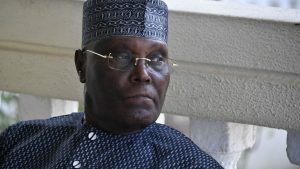Cote d’Ivoire: Wide Angle on 2025 Presidential Election – The Country is Dancing on a Volcano

With just five months remaining until the October 2025 presidential election, the political landscape in Ivory Coast is in a state of upheaval. Ambitions are clashing, and there is a surge of activity as leaders mobilize for more inclusive elections, particularly by pushing for the reinstatement of key opposition figures on the electoral lists. The nation’s political elite is in a frenzy, determined not to miss the crucial October 25th vote—a date that will undoubtedly mark a turning point in Côte d’Ivoire’s political history.
The stakes are extraordinarily high. The country of Houphouët Boigny is collectively holding its breath as the election approaches, a tension heightened by President Alassane Dramane Ouattara (ADO) keeping his intentions for another term shrouded in secrecy.
Jean-Louis Billon, for his part, sees himself as his party’s potential “Plan B” candidate for the presidency.
Meanwhile, ineligibility hangs over several iconic opposition leaders. Former President Laurent Gbagbo dreams of returning to the Cocody Palace; Charles Blé Goudé, once a street general, aspires to national leadership; Guillaume Soro, the former President of the National Assembly, has been declared persona non grata and now wanders the West African region; and Tidjane Thiam, the new face of the Democratic Party of Côte d’Ivoire-African Democratic Rally (PDCI-RDA), has taken up the mantle from the late President Henri Konan Bédié at the helm of the Elephant Party.
Currently, the field of candidates is in flux, as those interested have faced intense judicial scrutiny—scrutiny that seems to have cleared a path for the ruling party’s candidate from the Rally of Houphouetists for Democracy and Peace (RHDP), who has yet to formally announce his candidacy. Against this backdrop of uncertainty, the Coalition for Peaceful Alternation – Côte d’Ivoire (CAP-CI), a group of opposition parties, is organizing a meeting on May 31 in Abidjan.
While the official aim of this gathering is to demand transparent, fair, and inclusive elections, the central issue remains the reinstatement of opposition candidates—serious challengers to the ruling party—on the electoral lists. Meanwhile, Jean-Louis Billon, a prominent PDCI-RDA official, is reportedly positioning himself as his party’s alternative following the exclusion of their chosen candidate.
This situation underscores the intense competition for President ADO’s succession in Eburnie. As for the CAP-CI meeting, the key question is whether it will succeed in pressuring the government to meet its demands. That remains uncertain, especially since the government has so far remained silent in response to the opposition’s calls. It is likely, however, that the opposition will not stop at this single meeting; as the election draws nearer, they may increasingly turn to street demonstrations to ramp up pressure on the authorities.
The risk of a pre- or post-election crisis cannot be ruled out.
This article was translated from French – read the original article from Le Pays.
With the RHDP determined to retain power, it appears that President Ouattara is carefully planning his succession after yet another term marked by controversy and unrest along the shores of the Ebrié Lagoon. There is no guarantee that a possible bid by ADO for another term would not provoke a political tsunami, especially in this tense climate, where the opposition is seething over the disqualification of its leading candidates.
All signs indicate that, as the presidential election approaches, Côte d’Ivoire is indeed dancing on a volcano. The risk of both pre- and post-election crises is real. If tensions continue to escalate, positions may harden further. Should the government ignore the opposition’s demands, the latter may feel compelled to take their grievances to the streets.
This is a dangerous path, as violence often erupts in such circumstances. The mere prospect of another ADO candidacy remains highly controversial, and the debate is far from settled. The likelihood of his candidacy increases as, just months before the election, the president has yet to name a successor. Meanwhile, his supporters are mobilizing, encouraging him to run again despite opposition protests. All these factors are combining to set the stage for a potential showdown in Eburnie.
Ivorians must learn from their past to preserve social peace. With the painful memory of 2011 still fresh, they know all too well that no one benefits if the country descends into chaos. All sides must recognize that, despite political disagreements, there are boundaries that must not be crossed. Both the government and the opposition must exercise restraint and reason, no matter how high the stakes, and avoid awakening old demons that threaten the nation’s stability.



